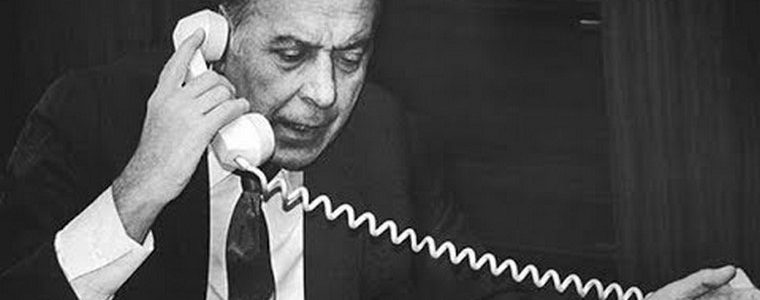Azerbaijani human rights activist and historian Arif Yunusov, who now resides in the Netherlands as a political immigrant, recently gave an interview to an Azerbaijani online TV channel “Obyektiv TV”. Yunusov stated that Armenian pogroms in January 1990, as well as Black January had been carried out by the order of Heydar Aliyev, who sought to come to power in Azerbaijan.
“Regarding the events of January 20, there are many myths in Azerbaijan. They are treated as if they are heroic feats and are a part of the national-democratic movement, which resulted in Azerbaijangaining independence. However, the events of January 1990 are actually connected to Heydar Aliyev,” said Yunusov.
He then explained that after winning the office and agreeing with Gorbachev in 1988, the First Secretary of the Communist Party of Azerbaijan Abdurrahman Vazirov initiated an investigation of Heydar Aliyev’s activity. The investigation included the whole period of his rule from 1969 to 1982. Apart from that, it involved earlier periods – how he altered his documents (his birthdate in particular) to not get drafted into the Soviet army in the years of WWII, as well as the details of his scandal with a female employee of KGB. Yunusov also stated that he had somewhat familiarized himself with the evidence.
According to Yunusov, in December 1989, the best and most experienced investigators of the Soviet Union arrived in Azerbaijan and settled in the hotel “Apsheron”. It also became known that in preparation for January 15, 1990, the Procurator General of the USSR had been engaged in preparing the summary of the investigation that would decide the fate of Heydar Aliyev.
At the end of January, a plenum of the Central Committee of the Communist Party of Azerbaijanshould have taken place, on which Aliyev and his whole team were to become ostracized from the Party and eliminated from the political arena of the country.
Of course, Aliyev was aware of the investigation and carried out an active counter campaign through his people in the Communist Party and Azerbaijani Popular Front Party (APFP). His people from APFP have been Abdulfaz Elchibey and Nemat Panakhly, not to mention other active members of the Aliyev clan, including Etibar Mamedov, Fazail Agamaly, and Bejan Farzaliyev.
In Baku, only Panakhly was aware of this. He thus planned to appear like a hero of the nation through his theatrical demolition of the border. And at the beginning of January 1990, Panakhly became the organizer of Armenian pogroms.
Yunusov also told that in 1992, he had been engaged in the investigation of the bloody events of January 1992. As the head of the Information-Analytical Department of the Presidential Apparatus of Azerbaijan, he invited polkovnik (a military rank corresponding to colonel) Oleg Aliyev.
Polkovnik Aliyev said that back in the days of the Armenian massacres, property and jewelry of Armenians had been brought to the headquarters of Nemat Panakhly located in the Schmidt factory in Baku. Yunusov didn’t say whether or not Panakhly had murdered Armenians himself, but one thing is certain – he had been behind the massacres and he is responsible for the deaths of innocent Armenians of Baku.
Being aware of the massacres, Moscow didn’t prevent those events and instead used them as a pretext for deploying their troops on January 20. According to polkovnik Aliyev, KGB knew the whereabouts of Panakhly very well. However, neither Moscow nor the leadership of KGB of Azerbaijan didn’t allow anyone to capture him. Elchibey did anything possible to give an end to the investigation against Heydar Aliyev, as well as to bring to him to power. And this is how it happened precisely – the event appointed by the Procurator General of the USSR was canceled, the investigation was put to its end, and the investigators left the republic. Shortly, Heydar Aliyev came to power.
Answering the question of the journalist about the role of APFP, Yunusov said that the organization had broken down into “radicals” (including Panakhly), “centrists” (Isa Gambar, Khikmat Gadzhizade), and “liberals” (Zardusht Alizadze and Leila Yunus). In regard to the question of who had been the agent of KGB after all and why state archives hadn’t been revealed in 1992, Yunusov stated that Panakhly hadn’t been an agent but rather the executor of Heydar Aliyev’s will. And the archives hadn’t been opened due to the position of Elchibey and the speaker of Azerbaijani parliament Isa Gambar.
If you understand Azerbaijani, have a look at the video of the interview below.
Source: hetq.am

